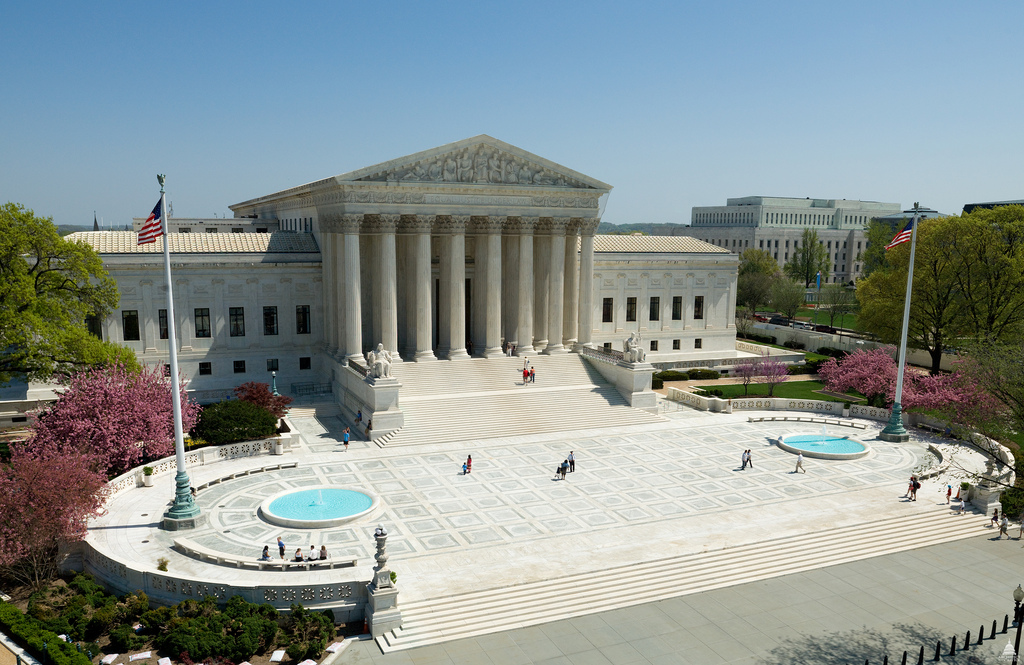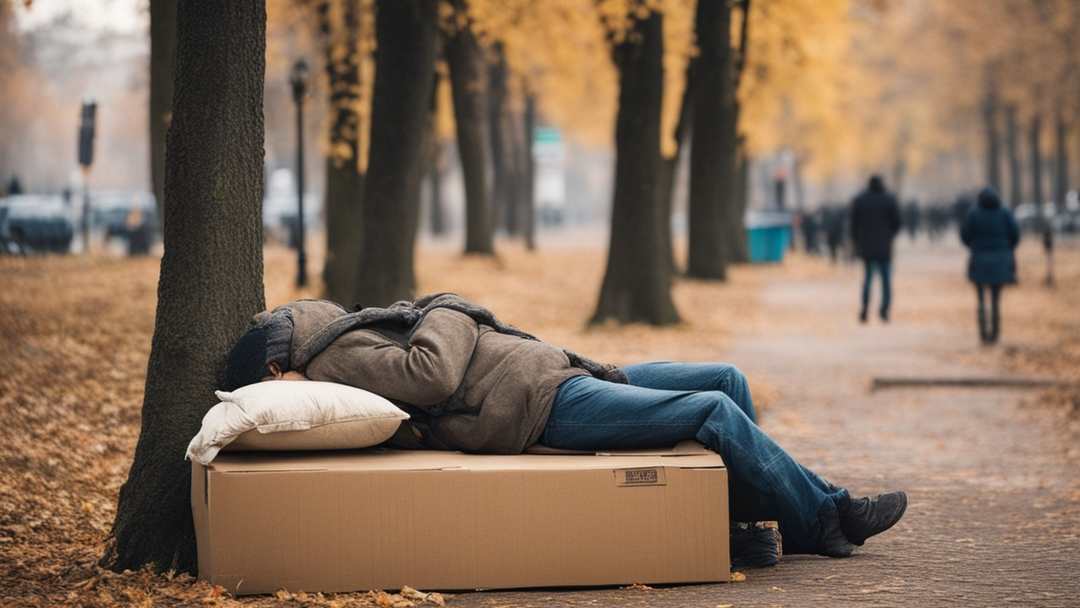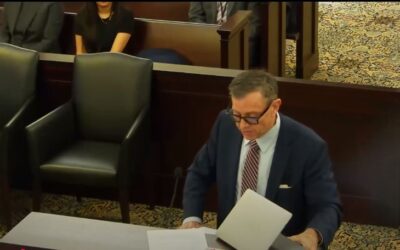Does not amount to “cruel and unusual punishment” under the Eighth Amendment
The Supreme Court has affirmed the validity of ordinances in a southwest Oregon city that restrict individuals experiencing homelessness from utilizing blankets, pillows, or cardboard boxes as protective measures against the elements while sleeping within city limits. In a decision reached by a 6-3 vote, the justices sided with the city of Grants Pass, asserting that the ordinances serve to prohibit camping on public property for all individuals and do not infringe upon the Constitution’s prohibition of cruel and unusual punishment.
Writing for the majority, Justice Neil Gorsuch contended that the Eighth Amendment, which bans cruel and unusual punishment, “serves many important functions, but it does not authorize federal judges” to “dictate this Nation’s homelessness policy.”
Instead, he suggested, such a task should fall to the American people.
Justice Sonia Sotomayor dissented, in an opinion joined by Justices Elena Kagan and Ketanji Brown Jackson. She argued that the majority’s ruling “focuses almost exclusively on the needs of local government and leaves the most vulnerable in our society with an impossible choice: Either stay awake or be arrested.”
In Grants Pass, a city with a population of just under 40,000, as many as 600 individuals experience homelessness on any given night, prompting the city’s decision in 2013 to intensify the enforcement of existing laws that prohibit the use of blankets, pillows, and cardboard boxes for sleeping within city limits.
Violators are subject to significant fines starting at 295 dollars, which can increase to 537.60 dollars if not paid promptly. Receiving two citations may result in local police issuing a ban from city property and anyone who disregards this order can be charged with criminal trespass, which may lead to penalties of up to 30 days imprisonment and a fine of 1250 dollars.
Holding: The enforcement of generally applicable laws regulating camping on public property does not constitute “cruel and unusual punishment” prohibited by the Eighth Amendment.
Judgment: Reversed and remanded, 6-3, in an opinion by Justice Gorsuch on June 28, 2024. Justice Thomas filed a concurring opinion. Justice Sotomayor filed a dissenting opinion, in which Justices Kagan and Jackson joined.
Recommended Citation: Amy Howe, Justices uphold laws targeting homelessness with criminal penalties, SCOTUS blog (Jun. 28, 2024, 1:48 PM), https://www.scotusblog.com/2024/06/justices-uphold-laws-targeting-homelessness-with-criminal-penalties/
Legal Counsel and Your Rights
When facing legal challenges, particularly in criminal cases, it is advisable to seek legal counsel immediately.
An experienced attorney can provide guidance on how to navigate interactions with law enforcement while safeguarding your constitutional rights.
Since 1993 our expert legal defense in navigating criminal law matters and protecting your constitutional rights are what we eat for breakfast everyday.
Contact Komorn Law PLLC if you’re ready to fight and win.
Research us and then call us.
More Rights You Should Know

4th Circuit says – Assault weapons can be banned
This case is about whether the Act’s general prohibition on the sale and possession of certain “assault weapons,” are unconstitutional under the Second Amendment. An en banc federal appeals court upheld Maryland’s ban on assault-style weapons in a 10-5 decision...

SCOTUS Decision Gives Starbucks a Win in Labor Dispute
The decision underscored the principle that only activities that are essential and directly related to an employee's primary job responsibilities are subject to compensation. In a recent decision by the Supreme Court of the United States (SCOTUS), Starbucks received a...
Other Articles
Defending Against Criminal Sex Charges
Defense against false accusations of Criminal Sexual Conduct (CSC) in MichiganDefending against a false accusation of Criminal Sexual Conduct (CSC) in Michigan is a serious matter and requires a well-prepared legal strategy. Here are several steps you should take to...
Forfeiture without Criminal Charges
Can the police seize your belongings and hold it without charging you with a crime?Read the summary below and watch Attorney Michael Komorn in the Court of Appeals.Summary of "Ruben Delgado v. Michigan State Police": This case was filed in the Jackson County Circuit...
Criminal Sexual Conduct (CSC) – Michigan
Criminal Sexual Conduct (CSC) in Michigan: Definitions, Penalties, and Legal References.Criminal Sexual Conduct (CSC) is a set of laws in Michigan that define and penalize various forms of sexual offenses. These laws are categorized into four degrees, with each degree...
23andMe filed for Chapter 11 bankruptcy and your data is?
As of Friday 3/28/25, the firm’s shares were worth less than a dollar.If you are charged with a crime you're part of the State of Michigan family now. Call us - Because you don't want to be a part of that family. Komorn Law (248) 357-2550Genetic testing service...
Michigan Supreme Court Vacates Court of Appeals Ruling of State Anti-Terror Statute
Michigan Supreme Court Vacates Court of Appeals Ruling, Temporarily Preserves State Anti-Terror StatuteIf you are charged with a crime you're part of the State of Michigan family now. Call us - Because you don't want to be a part of that family. Komorn Law (248)...
Free Speech, Terror and Michigan Law
Michigan Supreme Court Vacates Court of Appeals Ruling, Temporarily Preserves State Anti-Terror StatuteIf you are charged with a crime you're part of the State of Michigan family now. Call us - Because you don't want to be a part of that family. Komorn Law (248)...
Judge finds marijuana testing facilities run by ex-cops violated testing results
Viridis Laboratories has faced ongoing allegations of exaggerating THC levels while minimizing the potential risks associated with cannabis.If you are charged with a crime you're part of the State of Michigan family now. Call us - Because you don't want to be a part...
Domestic Violence Conviction Prohibits Gun Ownership
No Second Amendment Rights For YouIf you are charged with a crime you're part of the State of Michigan family now. Call us - Because you don't want to be a part of that family. Komorn Law (248) 357-2550A federal judge in Michigan has ruled that a man with a prior...



















